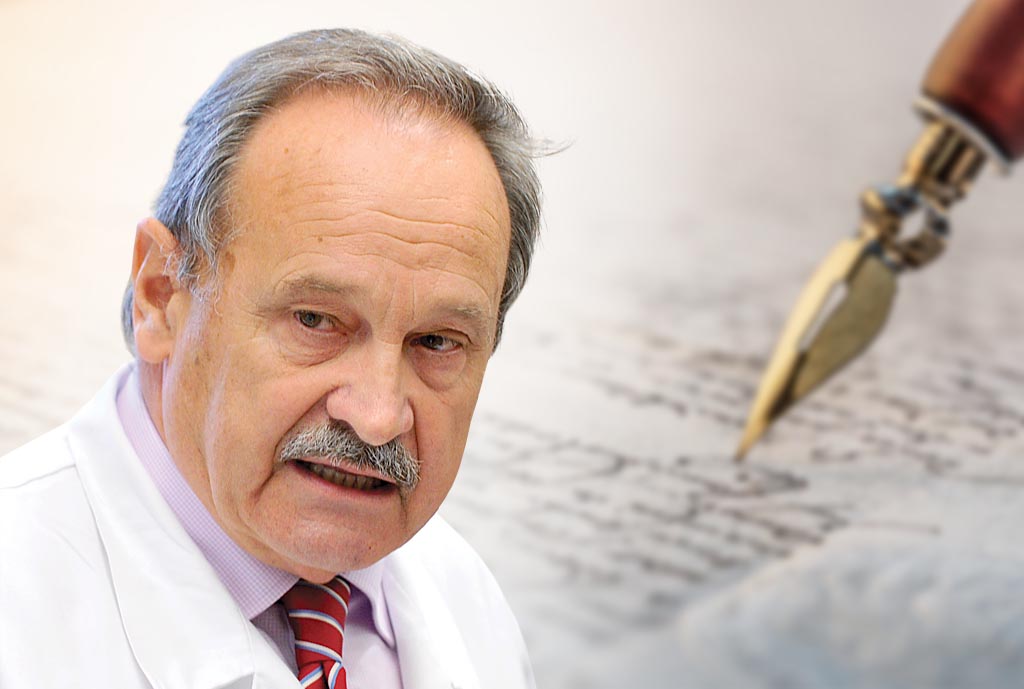By: Janez Remškar, MD, PhD, physician, former Member of the European Parliament, now President of the Assembly of the Republic
As a doctor, I became extremely attentive to the responses of the so-called civil society regarding the government’s measures in connection with the COVID pandemic. Why? Because it turned out to be an attack by the left-leaning part of civil society on the measures of Janez Janša’s government. I deliberately used the term “left-leaning”, which will become clear later.
SARS was a relatively rare disease; by the end of the epidemic in June 2003, the incidence was 8,469 cases with an 11% mortality rate. Since 2004, no cases caused by SARS-CoV-1 have been reported worldwide.
And yet, in December 2019, a second strain, SARS-CoV-2, was identified. This strain caused coronavirus disease, a pandemic with a high death toll. The world was unprepared; we had neither medicine nor a vaccine. In 2020, I reviewed past global activities related to the SARS virus, which had emerged in Asia between 2002-2003 and caused a significant number of deaths, and found that parts of Asia, especially Taiwan, had seriously prepared for the potential emergence of the same or a similar virus. With the outbreak of the new SARS-CoV-2 virus in China, Taiwan immediately, even before the end of 2019, began testing all Taiwanese returning from China for the presence of pathogens. They also had all the necessary measures regarding masks in place, ensuring adequate stock. They devised a plan on how schools, businesses, etc., would operate. Along with Singapore, they were exceptionally successful compared to the rest of the world, where death rates were high. Unfortunately, their preparedness received no response from the WHO, as only China is a regular member, while Taiwan is merely an observer! Politics, not for the first time, thus caused enormous harm to people worldwide.
What about us? Something similar happened here, as the media, with the help of the so-called civil society, managed to spread even false information among us! (A good example was Marcel Štefančič, who invited a doctor to Studio City, where he claimed that masks were pointless, that the measures did not work, etc.) How could the measures possibly have been effective if no one adhered to them? Even members of parliament tore masks off their faces. You remember! The medical profession was in distress! The pressure on the government was intense, politically orchestrated like nowhere else in the EU in this case, especially regarding movement restrictions. Meanwhile, in Trieste, people were not allowed to leave their homes more than 200 meters from their residences. Here, movement restrictions were perceived as hostile actions, and the government was accused of governing by decrees. Do we realise that the minority government had no other option? Would it even have been possible to pass a law amidst the constant obstruction from the political opposition, parts of civil society, and the media? This segment of our society behaved irresponsibly, solely with the aim of toppling Janez Janša’s government. They showed no regard for the basic human right to health and life. Is this something new for the left? Thus, in the opposition to government measures, civil society played a decisive role.
During the current government, the connection between the government and part of civil society, which fails to perform its role of overseeing the government, is even more apparent! Perhaps it is worth mentioning what falls under the so-called civil society. These include associations, foundations, institutes. Slovenia has around 27,000 such organisations, which include voluntary associations, religious communities, unions, humanitarian, cultural, environmental, consumer organisations, chambers, sports clubs, etc. Civil society is supposed to be part of the modern democratic system and should help realise the interests of groups, participate in informing, especially about the actions of those who hold power and influence, and their mistakes and abuses. This would enable it to monitor those in authority. This is the role of civil society, as stated by Dr Matevž Tomšič, which I can only affirm.
But beware! Within the entirety of civil society and in its relationship with the government and media, there must be pluralism between right- and left-wing politics, liberal and conservative ideas, religious and atheist groups, and all organisations should participate in public life equally. From a sociological standpoint, it is clear that only a society that is pluralistic, inclusive, and fair can advance. Unfortunately, this is not the case here! We could see this during the last election campaign, where part of civil society played a significant role. This segment of civil society was ideologically and politically entirely left leaning, promoted by the media and well-funded. This segment of civil society, under the previous government, sensed that it might lose part of its funding, that it might lose its privileged position, and thus it became heavily involved in toppling the government, causing incalculable harm to the people, even during COVID, with misleading information. I am horrified to find that this misinformation, far removed from expert data, is now being continued by the likely lecturer to the directors of healthcare institutions, Nika Kovač, by downplaying the measures of the previous government. And now she is supposed to lecture representatives of the healthcare sector. I can calmly say that we have never seen such a close relationship between politics and part of civil society, except perhaps during the Yugoslav era. As Edvard Kadič pointed out, perhaps Kovač’s appearance should be viewed as brainwashing for directors who are entirely dependent on the government!
So much for our civil society. It is true, however, that on the other side, or the centre-right, we do not know how to organise adequately. It is not all about money; we also need to think about our youth and do much of this work pro bono!

